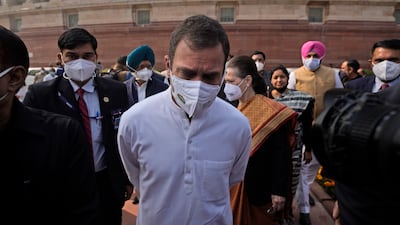A video that best captures the struggles of India’s primary opposition party, the Indian National Congress, emerged from its 137th foundation day celebrations last week. In the video, you’ll see Congress president Sonia Gandhi making an unsuccessful attempt at unfurling the party flag shortly before it falls off the flagpole, thereby providing an awkward moment for those in attendance.
India’s Grand Old Party, which led the freedom struggle against British colonial rule under the aegis of Mahatma Gandhi and Jawaharlal Nehru – and dominated national politics in the first six decades of independence – is floundering these days.
The party has just 53 seats in the 543-strong lower house of Parliament. It is in power on its own in just three of the 28 states and is part of coalition governments in just three others. Most importantly, it has been routed in successive general elections, in 2014 and 2019, with voters handing the Narendra Modi-led Bharatiya Janata Party brute majorities both times.
If Congress doesn’t get its act together and win key state assembly elections in 2022, this year could well begin the acceleration of the political behemoth’s gradual descent into irrelevance. And another drubbing against the BJP’s formidable election machinery, in the 2024 general election, could ring the death knell for the party, with possibly dire consequences for the republic’s liberal, secular character.
Sure, similar predictions have been made over the past seven years. But we’ve arrived at a point where it isn’t just the BJP that poses an existential threat to the GOP. Exasperated by Congress’s inability to reinvent itself, fellow opposition parties – including former allies – are striking out on their own, beginning by aggressively co-opting the party’s sizeable but increasingly disillusioned base.
Despite its diminished footprint, Congress still holds on to about 20 per cent of the national vote. While that’s not enough to win general elections these days, no other opposition party has such pan-India appeal. This gave Congress precious bargaining chips while stitching together electoral alliances in the past, whether it was over seat-sharing or who became the face of those alliances. The party's centrality was always a given. Which doesn't seem the case any longer.
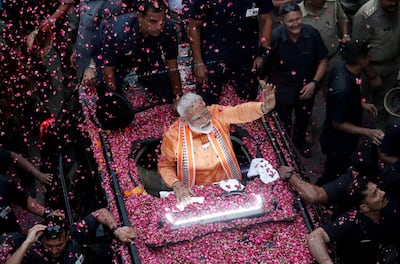
Many of Congress’s problems are of its own making.
Its organisation is in disarray, and it doesn’t even have a full-time president; Mrs Gandhi has been serving in an interim capacity for the past two years, as she waits for her son, Rahul Gandhi, to take over the reins after the 2019 election debacle prompted him to step down.
Amid widespread criticism, and in a bid to energise the cadre, Mrs Gandhi has promised to reform the party structure and hold long-suspended internal elections. Mr Gandhi, meanwhile, is expected to return as president, possibly this year, having been empowered to usher in new leaders and rid the party of the older, more established ones. With many of the independent-minded colleagues either sidelined or forced to leave, the Gandhi dynasty’s takeover of the firm seems complete.
But its vice-like grip leaves supporters in a real quandary. For although Mr Gandhi is the most popular leader among the party's rank and file, the general electorate has yet to warm up to him. Whatever be the reason – his dynastic background, mediocre oratory skills, apparent aloofness, perceived lack of focus – he's just not feeling the love like his father, grandmother and great-grandfather – all former prime ministers – used to in their heyday.
Leaders of several opposition parties, particularly those with more experience and heft than Mr Gandhi, privately raise doubts about his winnability. They point to the voters’ rejection of his leadership in 2014 and 2019 and want someone else to be given the mantle in 2024. It's an idea Mr Gandhi has unsurprisingly refused to endorse.
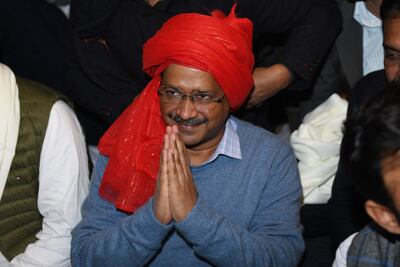
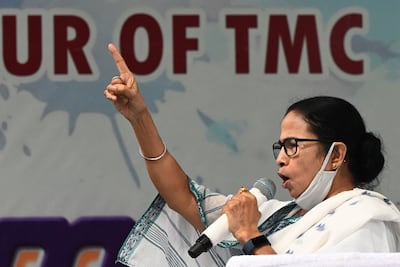
This has resulted in some parties not only opting out of a Congress-led anti-BJP alliance in the future but resolving to foray into Congress strongholds and courting its voters. The All India Trinamool Congress, dominant in eastern India, and the Aam Aadmi Party, a rising force in the country’s north and west, are notable examples.
Trinamool – which broke away from Congress in 1998 but remained an ally – wants its leader, Bengal Chief Minister Mamata Banerjee, to be named a united opposition’s prime ministerial candidate in 2024. Her considerable political and administrative experience combined with Trinamool’s resounding Bengal assembly election win against the BJP last year, party colleagues say, makes her the ideal candidate to take on Mr Modi. Having failed to convince the Gandhis, Ms Banerjee has effectively declared war against Congress by poaching many of its leaders across the country and contesting in next month's elections in a series of Congress bastions, including the state of Goa.
The AAP is playing the long game. Less focused on poaching, it is instead building from scratch its presence in states across northern and western India, where Congress still enjoys wide support, with efforts beginning to bear fruit in Punjab and Goa. Led by Arvind Kejriwal, a charismatic former bureaucrat and anti-corruption crusader, the AAP aims to replace a dwindling Congress as India’s premier opposition party in five years. Polls even give the AAP a shot at supplanting Congress as Punjab’s ruling party in 2022, eight years after achieving this feat in Delhi.
Over the past decade, India’s political landscape has seen a rightward tilt that mostly explains the rise of the BJP, a Hindu nationalist party, and the corresponding decline of Congress, an avowedly secular outfit. Opposition parties have taken cognisance of this. The AAP, and to a lesser extent Trinamool, is using Mr Modi’s template of combining the politics of nationalism and Hindutva (political Hinduism if you will) with welfarism of the kind championed by left-wing parties. It seems to be working for them.
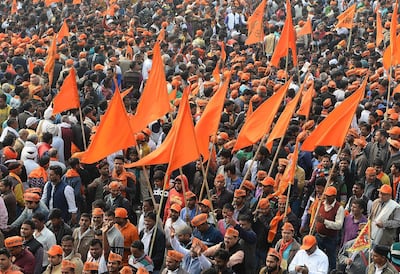
Congress’s challenge is that it's been less effective in its own outreach to the Hindu electorate than the AAP has, while conceding the nationalist vote to the BJP – despite its well-documented role in India's freedom struggle. The good news for the GOP is that, in the face of the ruling party’s policy missteps regarding the economy and the pandemic, regeneration is not a step too far for it. At least, not yet.
For it to continue claiming primacy in the opposition space, however, it needs to start winning elections again. Going through another drought in 2022 could stop that regenerative process in its tracks.
India’s political future really rides on this, not least because Congress’s possible replacement by the AAP and/or Trinamool as a counterweight to the BJP could forever unravel India’s secular ethos. For neither party, particularly the AAP, has shown the same ideological commitment to what’s been the bedrock of the republic since 1947.
The corollary, of course, is that Congress’s decline is a symptom of the already changing conception of India in the minds of its citizens – from a secular democracy to that of an ethnocracy, where the state apparatus is controlled by a dominant ethnic or religious group (in this case, by those who identify themselves as Hindu).
This may well be true; Mr Gandhi himself has often shared his concerns about a creeping majoritarianism in Indian society. But if he really cares to defeat it, he must ensure his party's survival, which he can do only by winning elections again while maintaining opposition unity. It will be vital for him to reach out to other parties, including the AAP and Trinamool, and to get everyone behind a cogent narrative and as widely acceptable a face as possible in time for the 2024 general election. He should do this even if it might mean suspending his own prime ministerial ambitions.
Else, all that talk about safeguarding secularism and India's constitution will be just as perfunctory as Congress’s foundation day celebrations are these days.
